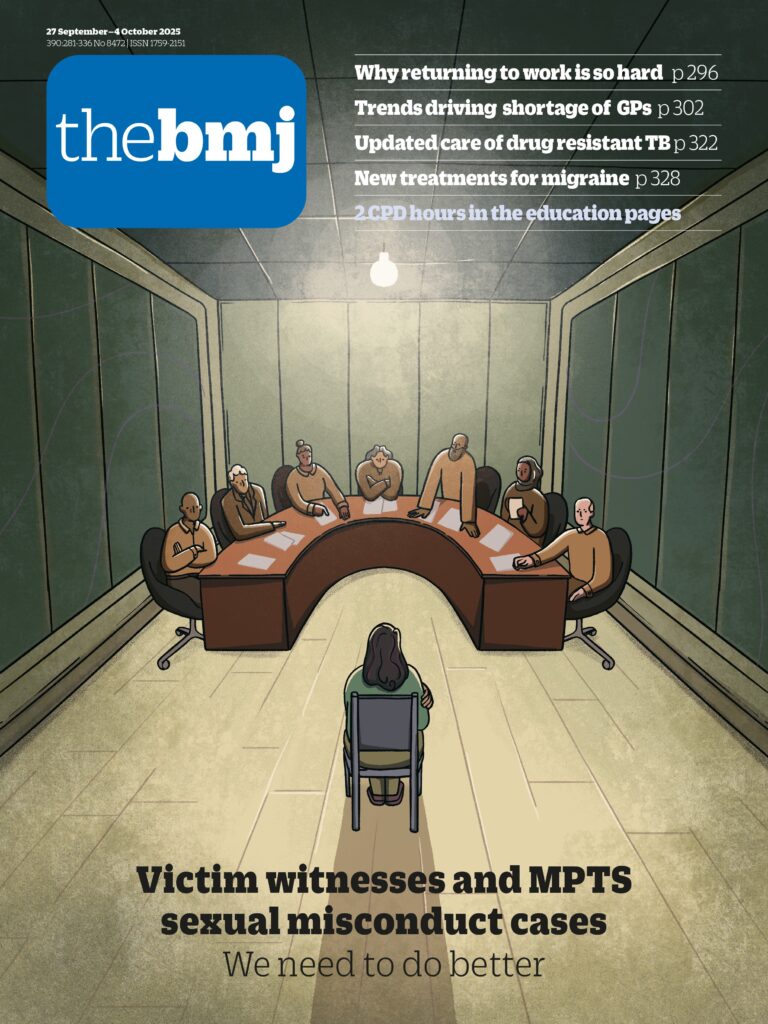- Bethanie Carney Almroth, professor of ecotoxicology
We need to put humans and the environment before corporate profits, writes Bethanie Carney Almroth
Plastics have become a concern at the forefront of public environmental awareness campaigns and in political discussions. Nations of the world convened in Geneva, Switzerland, in August 2025 to negotiate a globally binding United Nations treaty intended to end plastic pollution across the full life cycle—from production to disposal.1 It had been three years since heads of state agreed on a mandate to create this historic treaty, but although the sixth round of negotiations took place in Geneva, they ended without agreement. Some view this as a complete failure, but I do not. There is hope—the undeniable weight of the scientific evidence emerged as one of the strengths in the treaty negotiations. Representatives from countries around the world rejected the plastics treaty draft as it did not align with the evidence and would not be able to fulfil the mandate to end plastic pollution.
In the three years since adoption of the mandate, scientific evidence of the health and environmental harms of plastic pollution has increased,2 including its contribution to climate change and biodiversity loss. We are seeing the direct and indirect damage of plastics production, use, waste, and pollution on societies, economies, and human health. We have often been ignorant to the effects of plastics because of their sheer omnipresence, but they now pollute the entire planet, including our bodies. Large scale production of plastics began more than 70 years ago. Since then, production has increased dramatically from 2 million tonnes in 1950 to now exceeding more than 500 million tonnes annually.3
We urgently need to confront an often ignored truth. Plastics are not the low cost convenience we idealise—they are a hidden health catastrophe. Plastic pollution now incurs health related economic losses exceeding $1.5tn annually,4 inflicting devastating consequences across our lifetimes. Environmental costs of plastics pollution, valued as loss of ecosystem services (the benefits ecosystems provide to humans), are estimated at up to $2.5tn annually in marine ecosystems alone.5 These mounting tolls fall hardest on the most vulnerable people—children, pregnant people, and populations in low income countries and those that receive plastics pollution, through commerce and waste trade and transboundary movement of waste including by ocean currents. This is a particular problem for small island states.
The symptoms of this crisis cannot remain invisible. The problems are here already. What we need now is not vague promises about largely unproven recycling technologies but decisive, mandatory global action.6 Although actions across the full life cycle of plastics are needed, upstream measures will be most effective. Evidence shows us that an effective treaty will include obligations to reduce production.7 We are currently unable to mitigate the harms of plastic as production levels already exceed what the planet and humans can tolerate.34 Scientific evidence also supports listing and banning hazardous chemicals, using standards and criteria that are based on science.8 Reducing the number of chemicals used in plastics can increase safety and sustainability, be protective of human health, and can allow for increased circularity of materials.9
But efforts to implement these obligations through the ongoing treaty negotiations have been thwarted by fierce resistance from industry and corporate lobbyists, who prioritise short term profits over public health.101112 Major fossil fuel and petrochemical corporations, and so called petrostates, have worked to delay, weaken, or water down regulations, often framing urgent health warnings as alarmist or economically harmful, effectively obstructing development of effective policies.1012 The remainder of the negotiations and the future work of the Conference of the Parties must be protected from conflicts of interest. Simply put, this requires two steps: defining what constitutes a conflict of interest and using strategies to mitigate these conflicts. Such strategies include requirements for transparent reporting on individuals, organisations, and the data or information used in decision making processes, and steps to limiting the participation, input, and influence of those with vested economic interest in subverting treaty objectives.1314
The use of science and evidence will help us finalise the treaty. During the negotiations in August, countries of the world called for aligning the treaty with science to fulfil the mandate to end plastics pollution. By ensuring that scientists, rightful knowledge holders, Indigenous peoples, and other observers have access to meaningful participation in the negotiations, we can ensure that the treaty is grounded in equitable, evidence based decision making. We can ensure the protection of human rights, the right to a clean healthy environment, and the right to health. We can ensure the protection of people and the planet.
Footnotes
-
Competing interests: The author declares no competing interests. She is a non-remunerated founder and co-coordinator of the Scientists’ Coalition for an Effective Plastics Treaty.
-
Provenance and peer review: Commissioned; not externally peer reviewed.

